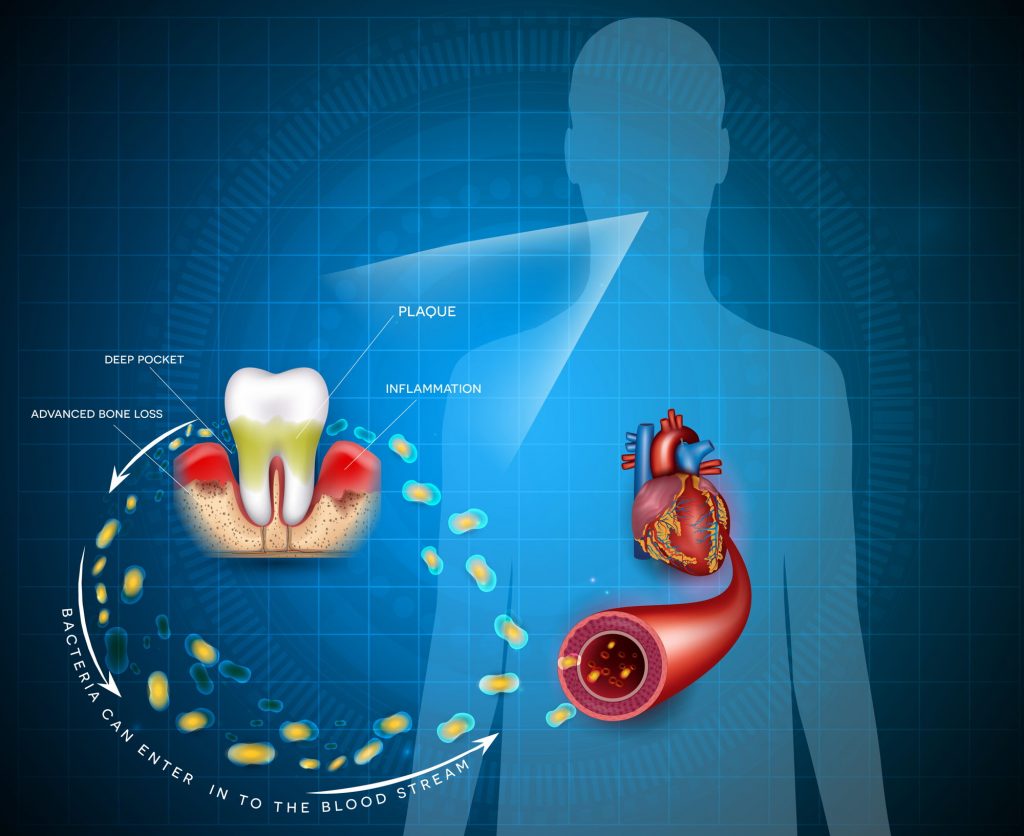There’s a link between oral health and overall physical health, wherein poor dental hygiene may lead to various health issues. Aside from resulting in tooth decay, cavities, and bad breath, not brushing your teeth can put you at risk of heart disease, Alzheimer’s disease, and other medical problems.
An aching tooth can weaken your whole body, which can lead to intense headaches that can impede your daily routine. This is why it’s crucial to keep your teeth healthy to also keep the rest of your body functioning properly. To do this, check out some of the helpful tips below:
Regularly Visit Your Dentist
Early diagnosis is important to avoid minor oral problems from getting worse, which can increase the risk of acquiring infections, which can lead to other health problems, like heart disease. The causative microorganism found in the mouth, when substantial in number, may enter the respiratory tract, the blood, and the heart, thus infecting the heart valves, which may lead to rheumatic heart disease.
It is then important to schedule regular checkups with your dentist in order to prevent what may be minor dental problems from turning into a full-blown disease. A dentist is licensed, knowledgeable, skilled, and experienced in assessing early signs and symptoms of teeth and gum problems. But keep in mind that not all dentists are the same, so you have to choose a dentist or dental firm, such as DentalCareXtra in Mackay QLD, that can provide excellent dental services.
Practice Good Oral Hygiene
The oral cavity contains mostly harmless bacteria, but some may enter the respiratory system and digestive tract, causing diseases. This is why it’s essential to practice good oral hygiene through proper brushing and flossing in order to keep oral bacteria under control, as well as help prevent gum disease and tooth decay.
Here are some helpful tips from the American Dental Association (ADA) when it comes to proper brushing and flossing:
- Brush your teeth at least twice a day.
- Floss your teeth at least once a day.
- Use an ADA-approved fluoride toothpaste.
- Use a toothbrush with soft bristles for gentle brushing to avoid gum damage.
- The recommended time to best replace your old toothbrush is after three to four months. However, if the bristles are frayed, you have to replace it immediately.
- When cleaning the gums, position your toothbrush at a 45-degree angle.
- Make sure to brush all inner, outer, and chewing surfaces of the teeth using short back-and-forth strokes.
Avoid Taking Certain Medications
Saliva plays an essential role in neutralizing acids in the mouth produced by bacteria, protecting the teeth and gums from infection. This includes preventing the multiplication of bacteria, as well as their spread throughout other organs. Periodontitis or gum disease plays a role in developing other diseases, like diabetes, pneumonia, endocarditis, and cardiovascular disease.
However, certain medications, like antihistamines, decongestants, diuretics, antidepressants, and painkillers, may reduce the flow of saliva. This is why as much as possible, taking these types of medications should be limited or avoided when not really necessary, or if there are other options available.
Eat a Balanced Diet
Many people fail to recognize the importance of eating a balanced diet in dental health. If you want a healthy body, you have to start by eating foods that are good for your teeth in order to build stronger teeth and healthier gums.
Here are some of the superfoods that can make your teeth and gums healthier:
- Cheese: This all-time favorite ingredient in helping combat tooth acid erosion. Instead of a sweet dessert, eating a slice of cheese after a meal can help reduce the acid left by a meal.
- Fish: Salmon and other fish are a rich source of vitamin D, which plays an important role in calcium absorption. In that way, you’ll benefit from the calcium content of the other foods you eat.
- Oranges: Oranges are rich in vitamin C, which strengthens connective tissue and blood vessels, preventing gum disease.
- Chocolate: In moderate amounts, dark chocolate can help harden your tooth enamel with the help of a compound called cocoa bean husk or CBH.
Get Enough Sleep
Sleep is important in attaining good health because it’s the best time for body tissues to recover. However, daytime stress may cause tooth grinding or bruxism during sleep, which can result in tooth damage.
This is why getting comfortable, quality sleep is important. You can do this by maintaining a soothing bedtime routine, such as keeping your bedroom quiet, relaxing, and dark. Avoid permanent dental damage by consulting a dentist and a dental sleep medicine expert if you begin to notice early signs of bruxism.
Conclusion
Oral health serves as the window to your general health. With proper brushing and flossing, eating healthy foods, getting enough sleep, and regular dental consultation, you can help maintain your dental health. Also, avoiding certain medications that can reduce the flow of saliva can help prevent the spread of infection from the mouth to the rest of the body. You’ll surely reap the benefits of practicing good dental hygiene by reducing the risk of developing serious medical problems, thus improving your immunity and overall health.

